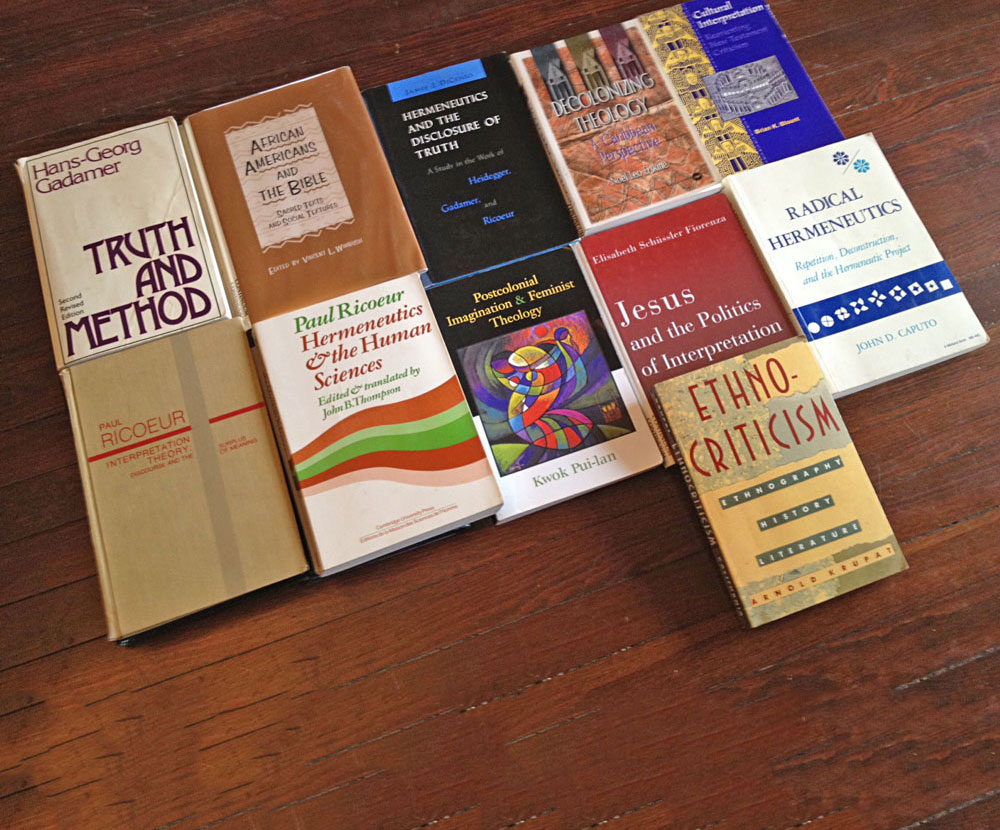NOTE: this course is being recast into a new form for the Fall 2020 schedule. It will occur under a new title: “Text, Ideology and Power: Hermeneutics in Theology. Examples of some of the new texts read are The World, the Text and the Critic, by Edward Said, The Talking Book: African Americans and the Bible by Allen Callahan, Patick Chabal and Jean-Pascal Daloz, Culture Troubles: Politics and the Interpretation of Meaning, and Mitzi J. Smith, I Found God in Me: A Woman A Womanist Biblical Hermeneutics Reader
A critical examination of theories of interpretation, “hermeneutics,” and of ways these illumine the cultural and political dimensions at work in all readings of theological and biblical texts. (This course was taught originally by Taylor as “Contemporary Hermeneutics in Theology,” then later, for a decade, co-taught by him with New Testament scholar, Dr. Brian K. Blount as “Cultural Hermeneutics.”)
The procedure is to consider, first, the ways in which the theological and philosophical legacies of Rudolf Bultmann and Hans-Georg Gadamer open new understandings of traditional texts. Both are seen as limited and insufficient, even while they nevertheless prepare the ground for taking up new sources as a lens on contemporary theological and political issues. These sources include Negro spirituals, the peasant community at Solentiname, Black preachers, fundamentalist, womanist, feminist, Asian and Asian-American, Latino/a, disabled and gay/bi/lesbian communities, Latin American and other interpreters of biblical texts. This work (1) demonstrates the various contextual factors that are most influential in their interpretive process, and (2) determines how those factors operate.
Syllabus
(The above syllabus will be significantly changed in light of the new version of this course beginning in Fall 2020, “Text, Ideology & Power: Hermeneutics in Theology)
